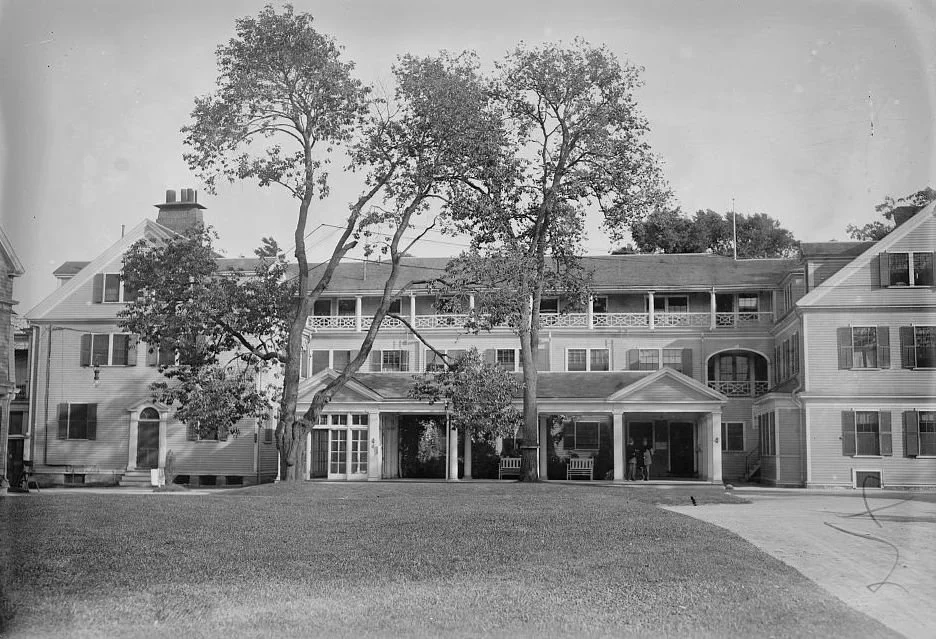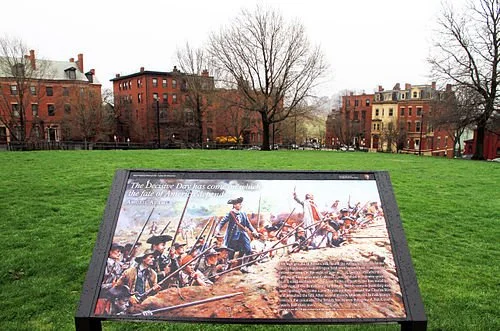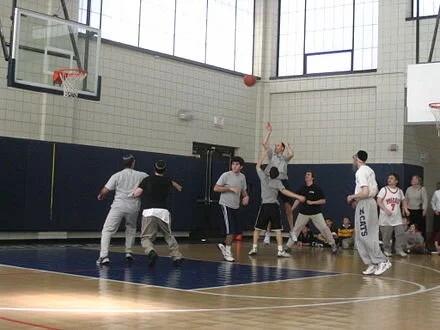
Safer outside
“Debate,’’ by Czech sculptor Tomas Kus, at the Andres Institute of Art Sculpture Garden, in Brookline, N.H.
Potanipo Pond, in Brookline, N.H., a small town that’s become part of Greater Boston’s exurbia.
—Photo by John Phelan
The balm of blue
“I Have Loved Many Colors” (encaustic monoprint), by Brookline, Mass.-based Lola Baltzell, in her show ‘Dabbling in Blue Magic,’’ at Galatea Fine Art, Boston, Nov. 4-27.
She tells the gallery:
"One of my favorite authors is {the late novelist}Vladimir Nabokov, and the title of this show is a nod to his imagery. One remarkable thing about his writing is that English is his second language. He refers to color frequently, my true love language.
Blue. Why Blue Magic?
All the work in this show is encaustic, also known as hot wax, and includes collage, painting and monoprints. I don't typically work in blue, yet all the pieces in this show are blue. I've spent a lot of the pandemic in the water - metaphorically and literally. Feeling adrift, lost at sea, looking for terra firma, yet I sought solace on the water, spending as much time paddleboarding as possible. Working in blue has felt like a balm, soothing, healing. My own blue period."
Views of Brookline
Photo collage by Ddogas
Toss the cigarette and tee off
The Country Club in 1913.
Adapted from Robert Whitcomb’s “Digital Diary,’’ in GoLocal24.com
The men’s U.S. Open golf tournament will be held June 16-June 19 at The Country Club, in Brookline, Mass. -- the first golf club in America to be called a “country club’’ (and for a long time known for its bigotry against some ethnic and religious groups and the dominance of Boston Brahmins).
The club was founded in 1882 but the golf course was not built until 1893.
I well remember being taken there by my father for the U.S. Open on June 20-23,1963, won by Julius Boros, who beat Jacky Cupit and Arnold Palmer in an 18-hole playoff. (No, we were not members!) The drama was delightful but it sure was hot. Watching Palmer, who was funny and charming, was great fun. (I had dinner with him and a couple of other folks at the opening of Walt Disney World in 1971.) I remember Palmer teeing off after throwing his cigarette on the ground. A more relaxed time.
Although golf courses can be environmental disasters – most are laden with chemical fertilizers and pesticides -- they can be very beautiful, which for me was more of a lure than the sport of chasing a tiny and very hard ball around 18 holes. I sometimes wish I had taken some more lessons from my father, with whom I played a few times. But I was off at school and then working in cities most of the time, and it’s a very expensive sport.
My father was a fine player, and won some tournaments, the last on the Massachusetts North Shore shortly before he dropped dead of a heart attack. After his memorial service, one of his friends said with a sigh: “He had a sweet swing.’’
Similar worlds, actually
In Monument Square Historic District, a city park and its surrounding buildings at the top of Breed's Hill in the Charlestown neighborhood of Boston. The location is the site of the 1775 Battle of Bunker Hill. Monument Square was laid out in the 19th Century, when the Bunker Hill Monument (a National Historic Landmark) was erected there. The neighborhood has in recent decades been intensely gentrified.
“I grew up, as I joke around, in the 'People's Republic of Charlestown' in the city of Boston. And I was blessed to be raised right there on Monument Square in Charlestown, and every morning I'd hop on the bus and go on a 45-minute ride out to the suburbs in Brookline for elementary school. And I got to have my seat, really, in both worlds.’’
— Jonathan Tucker (born 1982), American actor
Contradiction in terms
A faculty member takes a shot in the 2006 Maimonides School faculty vs. senior class basketball game — an annual tradition proceeds from which are donated to charity.
“To try to be at once a Lithuanian yeshiva and a New England prep school: that was the unspoken motto of the Maimonides School of Brookline, Mass., where I studied for 12 years.’’
— Noah Feldman (born 1970), constitutional-law expert, columnist and all-around public intellectual
Noah Feldman
'Grotesque' courses
Water hazard, sand trap and dense vegetation on the 13th hole at Ridgefield (Conn.) Golf Course
— Photo by Don Williams
British golfer Harry Vardon at the 1913 U.S. Open, at The Country Club, in Brookline, Mass. The club had one of America’s earlier courses, and it remains one of the country’s most famous.
“You claim New England’s a pretty place? Think again. Oh, it’s fine for hiking or camping; it’s got all those swell bubbling brooks; it’s peaceful and clean and colorful. But, look, when it comes to something truly important, like the game of golf, these northeastern states can be downright grotesque.’’
Tim O’Brien, in “The Beholder’s Eye,’’ in New England: The Four Seasons (1980, edited and with photos by Arthur Griffin
And waiting for you to leave
“Mighty Aphrodite” (mixed media), by Brookline, Mass., artist Martin R. Anderson, now at Bromfield Gallery, Boston
With a population of about 59,00, Brookline is the most populous municipality in Massachusetts to have a town (rather than city) form of government.
Niche, the ranking and review Web site, placed Brookline as the best place to live in Massachusetts and the 10th best in America.
Brookline was first settled in 1638 as a hamlet of Boston; it was incorporated as a separate town in 1705.
Until it isn't
“When Everything is Uncertain, Anything Is Possible” (paper, gesso, watercolor, tape, oil, acrylic, graphite, charcoal, pigment, oil bar on distressed paper, about 13.5 x 7 feet), by Dell Hamilton, at the Brookline (Mass.) Arts Center.
Video of author’s talk on a new JFK biography
John F. Kennedy (1917-1963) in a football uniform at Dexter School, in Brookline, Mass., in 1926
From The New England Council (newenglandcouncil.com):
“John Hancock Life Insurance Co., based in Boston, recently hosted a virtual discussion with Harvard professor and author Fred Logevall, who discussed his new book JFK: Coming of Age in the American Century, 1917-1956. Logevall is the Laurence D. Belfer Professor of International Affairs at the Harvard Kennedy School, and a professor of history in the Faculty of Arts & Sciences at Harvard University. He is a specialist on U.S. foreign-relations history and 20th Century international history, and the author or editor of 10 books.
So don't stand underneath when I angrily fly over
“Everybody's Talking At Me’’ (oil on copper), by Brookline-based Nora Charney Rosenbaum, at Galatea Fine Art, Boston, Jan. 8-31.
Official seal of Brookline. The Muddy River is a series of brooks and ponds that runs through sections of Boston's Emerald Necklace, including along the southern boundary of Brookline, a town that went by the name of Muddy River Hamlet before it was incorporated, in 1705.















